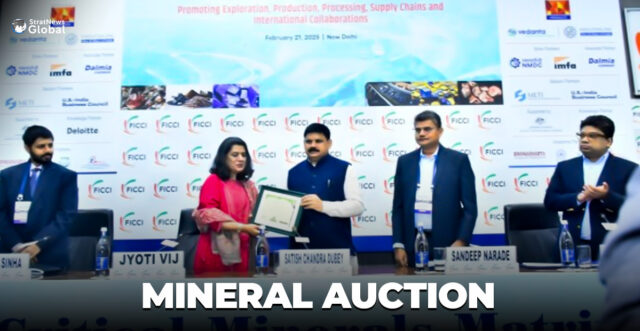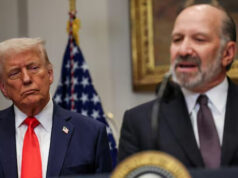India plans to auction as many critical mineral blocks as possible by 2031 in an effort to secure critical mineral resources.
India’s move comes amidst the drama over U.S. President Donald Trump’s attempts to access Ukraine’s massive reserves of critical minerals in return for brokering a peace deal with Russia.
This is part of a broader Indian strategy to reduce import dependence and ensure stable supply chains for minerals crucial to green energy and advanced technology industries.
Announcing this at a FICCI conference titled Critical Minerals Matrix in New Delhi last week, Union Minister of State for Mines and Coal Satish Chandra Dubey underlined the government’s commitment to strengthening domestic production capabilities and advancing mineral security as a key pillar of India’s self-reliance initiative.
“The government has already auctioned 24 critical mineral blocks domestically, and we aim to auction as many critical mineral blocks as possible by 2031,” he said.
This initiative aligns with the recently launched National Critical Minerals Mission, which has allocated ₹34,300 crore over seven years to enhance India’s standing in the global critical minerals sector, he added.
Stressing the need for greater collaboration between the government and private sector to drive mineral exploration and extraction, he said: “We must work as complementary partners and as a team to build a self-reliant India.”
The announcement comes at a time when concerns over supply chain disruptions for essential minerals are growing. These resources are vital for industries such as electric vehicles, electronics, and renewable energy systems, which rely heavily on minerals like lithium, cobalt, and rare earth elements.
Welcoming the move, FICCI Director general Jyoti Vij said the National Critical Minerals Mission has arrived at a crucial time, coinciding with increased budget allocations aimed at boosting mineral production, recycling, and global acquisitions.
FICCI has established a dedicated Committee on Critical Minerals to facilitate collaboration between the government and industry stakeholders, she added.
Industry leaders at the conference highlighted the pressing need for a structured policy framework to support mineral exploration and processing.
Dhiraj Nayyar, Group Chief Economist at Vedanta, stressed that India must prevent a transition from oil import dependence to mineral import dependence. “The key is exploration,” he said, calling for faster approvals and more flexible land allocation policies for mining activities.
A report by FICCI and Deloitte which was released at the conference projects a significant increase in India’s demand for critical minerals over the next decade. According to Rajib Maitra, Partner at Deloitte, lithium demand alone is expected to surge by nine to ten times within this period.
The report outlines four key areas for strategic development: policy and incentives, advanced processing technologies, integrated supply chains, and skill development. It recommends the creation of Critical Mineral Recovery Zones under public-private partnerships and the establishment of a national database for mine tailings assessment.
Additionally, it highlights international best practices from Australia, the U.S., Japan, and Canada, where dedicated funds and collaborative programs have successfully enhanced critical mineral recovery efforts.
In a career spanning three decades and counting, Ramananda (Ram to his friends) has been the foreign editor of The Telegraph, Outlook Magazine and the New Indian Express. He helped set up rediff.com’s editorial operations in San Jose and New York, helmed sify.com, and was the founder editor of India.com.
His work has featured in national and international publications like the Al Jazeera Centre for Studies, Global Times and Ashahi Shimbun. But his one constant over all these years, he says, has been the attempt to understand rising India’s place in the world.
He can rustle up a mean salad, his oil-less pepper chicken is to die for, and all it takes is some beer and rhythm and blues to rock his soul.
Talk to him about foreign and strategic affairs, media, South Asia, China, and of course India.





